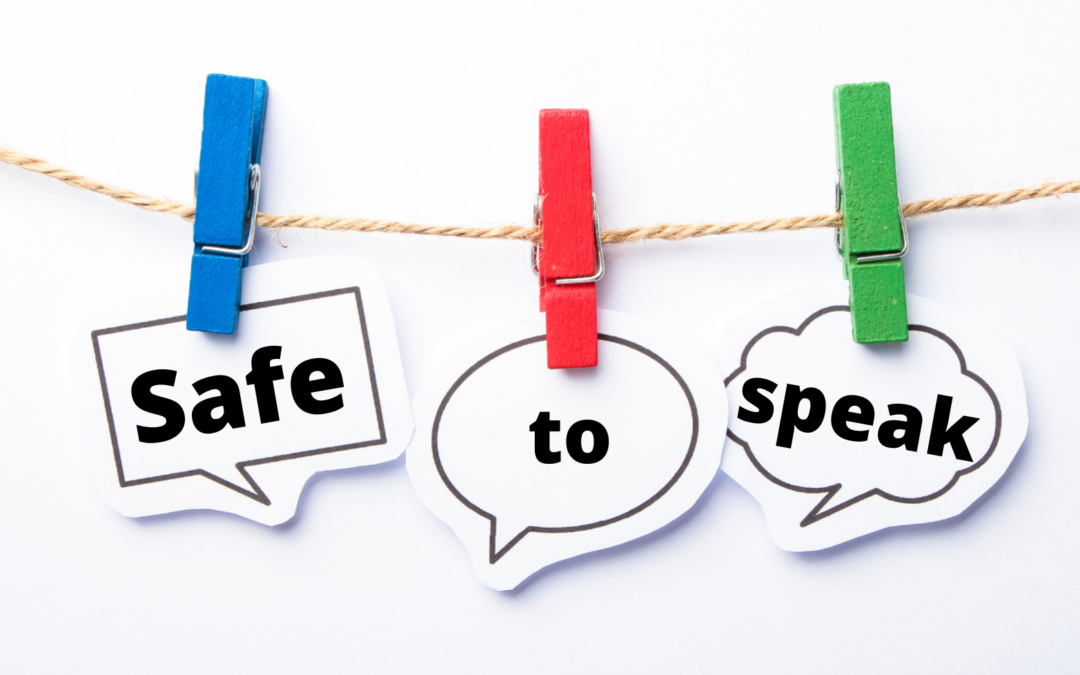DANA has heard from many advocates around Australia supporting and engaging with people to tell their story that privacy and confidentiality concerns have emerged as a key barrier. We are therefore extremely pleased that after a request from the DRC Chair and much coordinated advocacy and campaigning, the Australian Government has finally fulfilled their commitment to amend the legislation to extend full protections to all forms of submission.
Yesterday, the Disability Royal Commission welcomed this legal change to protect confidential information: (See media release). This morning DRC Chair Ronald Sackville was interviewed on ABC Radio National about the significance of this change and the progress of the Commission.
Your Story Disability Legal Support also welcomed greater privacy protections for Royal Commission participants. (See media release)
Background:
In February 2020, the Hon. Ronald Sackville AO QC, Chair of the Disability Royal Commission, requested the Australian Goverment amend the legislation to extend the same privacy protections available under the Royal Commissions Act for the Royal Commission into Institutional Responses into Child Sexual Abuse to the Disability Royal Commission.
During that year People with Disability Australia wrote to the Attorney-General supporting this request and highlighting the need for the legislation to change in order for people with disability and others to feeling comfortable and safe to tell their stories to the commission.
Following an open letter and campaigning from disability representative and advocacy organisations, the Attorney-General published a media release in October 2020 announcing these amendments will be made, indicating that: “I have instructed my department to work swiftly on the amendments, with the aim of introducing in the Autumn sittings of 2021.”
The Government made a commitment to introduce legislation to make it safe to speak to the Disability Royal Commission in the March sitting of Parliament. With no draft legislation released disability representative and advocacy organisations again called for this change, through a joint open letter from to Acting Attorney-General Michaelia Cash and more campaigning
The lack of confidentiality protections may also have led to a higher demand for private sessions, and a long waiting list.
Why this is important:
Many advocates around Australia supporting and engaging with people to tell their story have told DANA that privacy and confidentiality concerns have been a key barrier:
“The laws around Commissions and Privacy are complex, advising someone on the best way to share their story is challenging (even with legal support)”
VIC Advocate, October 2020 Survey response
“The main problem is the lack of assurance of confidentiality. It comes up as a major issue for every single person I have assisted so far. It is also the main reason given for people who ultimately decide that while they have experienced trauma or abuse, they don’t feel safe telling the Commission about that until the legislation is changed.”
QLD Advocate, October 2020 Survey response
“People do not want to tell their story if it cannot be made confidentially.”
VIC Advocate, November 2020 Survey response,
“the messaging from the legal side is providing an obstacle in itself for people to put in submissions… it is a real disincentive for people.”
WA Advocate, October 2020 Zoom discussion
…“encouraging people to engage with this process and then giving them a lot of information that is scary. It is like saying, come and do this but it is subject to freedom of information, and we do recommend you check with someone legal just in case you get yourself in a lot of trouble. That messaging makes someone teetering on whether to engage with it think ‘this sounds scary’ and they are just not going to do it just to be cautious, rather than ‘I will do it and I will get it checked.’”
If [the confidentiality issues] gets solved right at the end of the commission how is there any opportunity to respond to that? That would free up people to feel safer to provide that information, yet it would be too late to put it into the report, I am very frustrated around that issue.
WA Advocate, October 2020 Zoom discussion
“Confidentiality is a big problem.”
SA Advocate, November 2020 Survey response
The issue of confidentiality protections has been identified as particularly problematic for people from multicultural or non-English speaking backgrounds and for Aboriginal people living in rural and remote areas:
“…and the messaging from the legal side is providing an obstacle in itself for people to put in submissions… For CALD people and First Nations people who imagine cost and all those things involved in it, it is just a hinderance…The messaging for people was that they are being advised that all submission go through a legal process.”
WA Advocate, October 2020 Zoom discussion
“There’s a sense of shame if someone has been abused by their stepfather, the mother may know. But there was a sense of shame in one family of bringing this issue up and going to the Royal Commission and she didn’t want it out in the public. She’d been through a process before. But it’s being able to say to families that this is completely confidential and to be able to guarantee that and at the moment you can’t guarantee that, can you?… I think [amending legislation is] really important and it will help people come forward.”
WA Advocate, November 2020 Zoom workshop
In 2021 this delay in passing legislation to address these problems has continued to complicate messaging and people with stories to tell the DRC have continued to feel uncomfortable and unwilling to make submissions without full assurances of privacy.
…is there an update on the DRC Privacy legislation? This is critical as we have a number of submissions pending this legislation passing.
SA Advocate, DANA Forum on DRC Advocacy and Engagement – Update, July 2021

